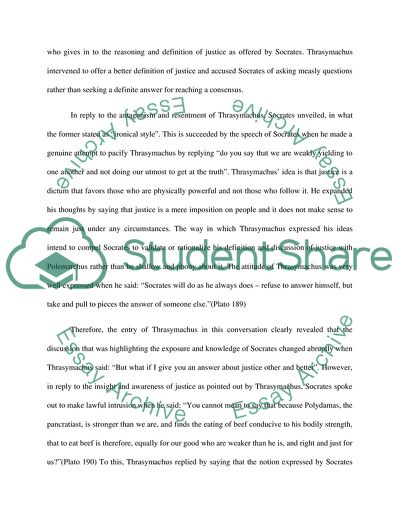Cite this document
(Analysis of the Discussion between Socrates and Thrasymachus from Essay, n.d.)
Analysis of the Discussion between Socrates and Thrasymachus from Essay. https://studentshare.org/philosophy/1807721-analyze-an-exchange-between-socrates-and-polemarchus-or-thrasymychus-in-book-1-of-the-republic
Analysis of the Discussion between Socrates and Thrasymachus from Essay. https://studentshare.org/philosophy/1807721-analyze-an-exchange-between-socrates-and-polemarchus-or-thrasymychus-in-book-1-of-the-republic
(Analysis of the Discussion Between Socrates and Thrasymachus from Essay)
Analysis of the Discussion Between Socrates and Thrasymachus from Essay. https://studentshare.org/philosophy/1807721-analyze-an-exchange-between-socrates-and-polemarchus-or-thrasymychus-in-book-1-of-the-republic.
Analysis of the Discussion Between Socrates and Thrasymachus from Essay. https://studentshare.org/philosophy/1807721-analyze-an-exchange-between-socrates-and-polemarchus-or-thrasymychus-in-book-1-of-the-republic.
“Analysis of the Discussion Between Socrates and Thrasymachus from Essay”. https://studentshare.org/philosophy/1807721-analyze-an-exchange-between-socrates-and-polemarchus-or-thrasymychus-in-book-1-of-the-republic.


